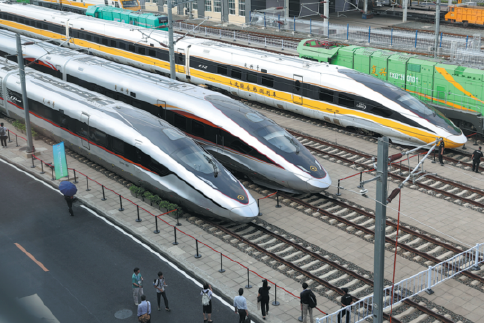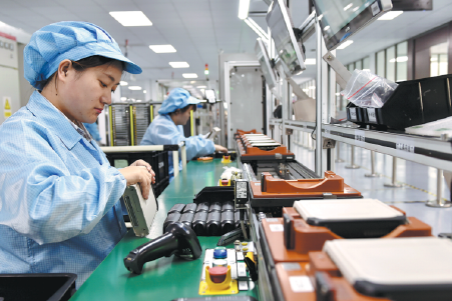EU policy shift may spell trade trouble

The European Union's evolving trade policy, from "de-risking" to measures more oriented toward "decoupling", has raised concerns about increased friction with China, particularly as the bloc seeks closer alignment with the United States to avoid trans-Atlantic tensions, according to market watchers and exporters.
Such a shift, they said, could lead to a growing number of trade remedy actions against Chinese products, further weakening the authority of the World Trade Organization and casting a shadow over the future of China-EU economic and trade cooperation.
After the EU included certain Chinese companies and financial institutions in its 18th round of sanctions against Russia last week, the Ministry of Commerce said on Monday that China would take necessary steps to firmly safeguard the legitimate rights and interests of its businesses.
The move, made despite repeated representations and objections from China, is a unilateral action that lacks any basis in international law, a ministry spokesperson said in an online statement. The decision included what China described as "groundless" accusations against two of its financial institutions.
The heightened uncertainty is also prompting Chinese companies to reassess their investment plans in Europe, said Liu Ying, a researcher at Renmin University of China's Chongyang Institute for Financial Studies.
"The escalating trade tensions may ultimately undermine the EU's own interests, affecting job creation and delaying progress on its green transition agenda," said Liu, calling for strengthened dialogue, mutual trust and a renewed commitment to multilateralism to ensure the stability of global trade and sustainable development.
The automotive working group of the China Chamber of Commerce to the EU (CCCEU) held work meetings with officials from the team of EU Commissioner for Trade and Economic Security Maros Sefcovic and Bernd Lange, chair of the European Parliament's committee on international trade, in Brussels earlier this month.
According to information released by the CCCEU, the meetings marked the first formal engagement between the newly established automotive working group, launched in February this year, and these two key EU institutions.
The working group voiced concern over growing uncertainty stemming from EU policy tools such as the Foreign Subsidies Regulation and the EU framework for foreign direct investment screening.
Amid an increasingly complex and volatile global landscape, Europe's outlook is undergoing a period of adjustment, and China-EU relations stand at a new juncture, said Fang Dongkui, secretary-general of the CCCEU.
Despite policy concerns, China-EU trade remains resilient. Bilateral trade grew by 3.5 percent year-on-year to 2.82 trillion yuan ($392.86 billion) in the first half of 2025, accounting for 12.9 percent of China's total foreign trade, statistics from the General Administration of Customs showed.
Fang Zhihao, vice-president of Ningbo Fuda Intelligent Technology Co Ltd, a Ningbo, Zhejiang province-based manufacturer of portable air conditioners and dehumidifiers, said that strong and stable China-EU business relations can reduce trade barriers and pave the way for easier market access on both sides.
"Our portable products, for instance, eliminate installation hassles, and provided immediate relief during Europe's recent heat waves," Fang said.
The company exported more than 70,000 portable air conditioners to the European market between January and June, up 20 percent year-on-year, data from Ningbo Customs showed.
zhongnan@chinadaily.com.cn




































